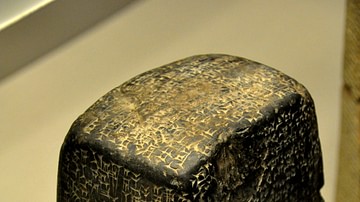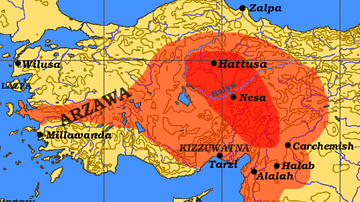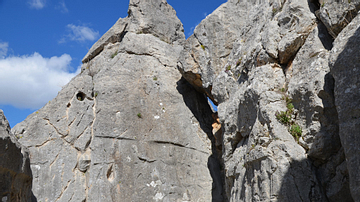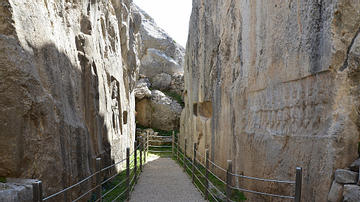Search
Search Results

Lesson Pack
Ancient Roman Religion
We have prepared three lesson plans including classroom activities, assignments, homework, and keys as well as: - Multiple choice quiz questions in an excel format - Glossary of keywords and concepts in an excel format - Open questions...

Image
Yazilikaya Hittite Rock Sanctuary
Yazılıkaya is a Hittite rock sanctuary located about 1.5 kilometres northeast of Hattusa, the capital city of the Hittite Empire in the late Bronze Age. It is the largest known Hittite rock monument. The sanctuary consisted of a temple-like...

Collection
The Shinto Religion
Shinto is the oldest religion in Japan and has become an integral part of that country's culture whether it be in daily worship and ritual, the famous tourist site shrines or the appearance of Shinto characters in contemporary comics and...

Definition
Adad Nirari I
Adad Nirari I (r. 1307-1275 BCE) was the king of the Assyrian Empire who initiated the first major expansion of the Assyrian kingdom from the city of Ashur throughout the region of Mesopotamia. He also instituted what would become standard...

Definition
Kaskians
The Kaska or Kaskians were a tribe of the Pontus, northern Anatolia (today's Turkey), around the Kizil Irmak river mouth, bordering on and constantly harrasing the Hittite empire. That area is mostly mountainous in nature, and there the Kaska...

Collection
Aztec Religion & Culture
Aztec religion and culture flourished between c. 1345 and 1521 and, at its height, influenced the majority of the people of northern Mesoamerica. Great monarchs such as Montezuma imposed Aztec ideals across the area of modern-day Mexico...

Image
Hittite Rock Reliefs at Yazilikaya
Hittite rock reliefs in Chamber A of the Yazilikaya Hittite Sanctuary (13th century BCE). On the left wall, the relief depicts the meeting between Teshub, the Hurrian god of sky and storm, and Hepat, the mother goddess of the Hurrians. On...

Image
Yazilikaya Hittite Rock Sanctuary, Overview of Chamber B
The Yazilikaya Hittite sanctuary near Hattusa was made of two rock chambers, later labelled Chamber A and Chamber B by archaeologists. The walls of each chamber were covered with the richest and most striking samples of Hittite relief art...

Image
Hittite Lion Tub at Hattusa
A Hittite Lion Tub lying among the ruins of the Great Temple at Hattusa, the capital of the Hittite Empire. The basin was originally 5.5 metres long, and featured crouching lions at all four corners. It probably had a role in cult rituals.

Image
Yazilikaya Hittite Rock Sanctuary, Overview of Chamber A
The Yazilikaya Hittite sanctuary was made of two rock chambers, later labelled Chamber A and Chamber B by archaeologists. The walls of each chamber were covered with the richest and most striking samples of Hittite relief art. They featured...